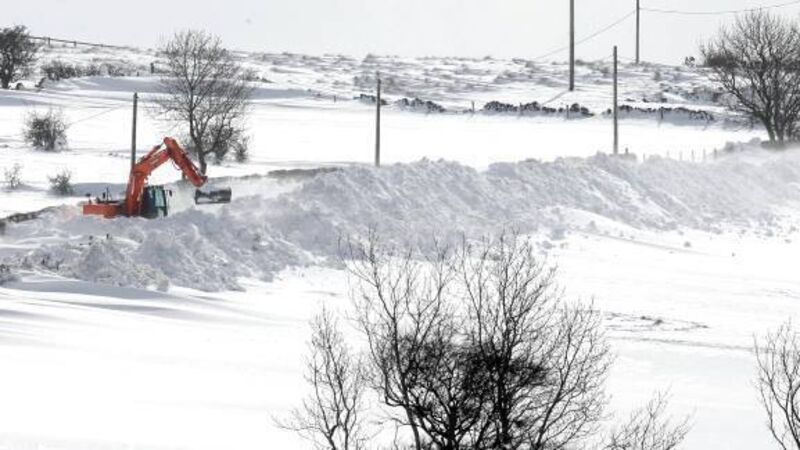Helicopter drops feed for animals stranded in deep snow in the North

A British Royal Air Force Chinook helicopter has started dropping feed to thousands of farm animals stranded in huge snow drifts in the North as the agriculture crisis triggered by blizzards deepened.
Thousands of animals are feared dead, but the extent of the losses is still unclear as most of the missing livestock are buried below the thick blankets of snow that have enveloped parts of counties Antrim and Down.













